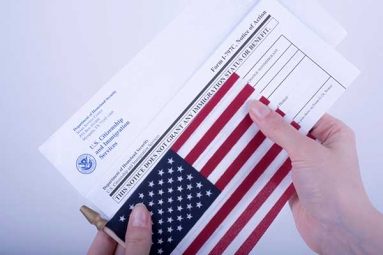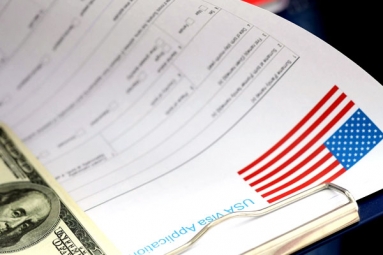
(Image source from: Planet Reporter)
The stringent H-1B visa rules are affecting Indian immigrants in the United States extensively. A research paper by an academic revealed that the move to impose limits on H-1B visas by the successive American government has led to many U.S.-based multinational companies shifting jobs to India, China, and Canada.
The paper by Britta Glennon, an assistant professor at the Wharton School of Business at the University of Pennsylvania, studied data of H-B visas issued since 2004.
For every three visa applications that were turned down, the U.S. companies moved one job offshore over the last decade and a half, as they looked for talent in high technology domains, said the paper.
The U.S. thus far issued work permits to 70 percent of Indian high technology professionals.
“Limiting skilled immigration - through restrictions on H-1B visas - prompted U.S. multinational firms to go offshore; when these firms couldn’t hire the skilled workers they needed at home, they simply hired them at their foreign affiliates instead,” Glennon told the Economic Times. “They also opened more foreign affiliate offices abroad in response to the H-1B restrictions.”
The paper noted that the effect is stronger among R&D intensive firms in industries where services could more be offshored.
Read: Infosys 3rd Best Regarded Company in World: Forbes
A data from Nasscom (National Association of Software and Services Companies) said over a third of India’s $136 billion IT services exports comes from MNCs with global in-house centers or captive centers, which employed almost a people from India in FY19.
Also, the number of global in-house centers in India increased to more than 1,250 in FY19.
Sukanya Roy, the director at Zinnov was quoted by the Economic Times saying the companies that are fighting to be innovative and build new products to stay ahead of the competition have no option but to move offshore.
“Limitations in visas and travel constraints within service providers and partners make it difficult for the larger set of team members to travel and create this domain expertise... This has created a situation where global companies are realizing that offshore centers not only enable them to nurture the talent and ensure retention but also retain core work in-house,” she said.
In an interview with Knowledge@ Wharton, the business school’s publication, Glennon said: “I suspect that even firms who haven’t offshored yet are now considering doing so as H-1B policies get more and more restrictive. And under the current administration, they have gotten much more restrictive.”
Since 2014, the year Trump took charge as the U.S. President, the restrictions on H-1B visas have been incessant. In 2018, India’s major IT companies like Tata Consultancy Services, Infosys, HCL Technologies, and Wipro have seen around half of their work visa applications getting rejected.
By Sowmya Sangam



















